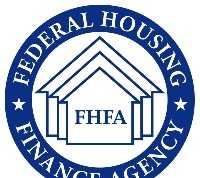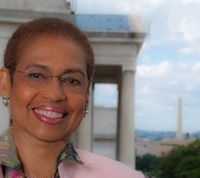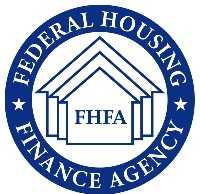Attorney General Sessions Delivers Remarks at the Fair Housing Act 50th Anniversary
Remarks as prepared for delivery.
WASHINGTON, D.C. – (RealEstateRama) — Thank you, Jesse for that kind introduction and thank you for your continued outstanding leadership at the Department as our Acting Associate Attorney General.
I want to thank John Gore for doing a fabulous job as acting head of the Civil Rights Division. I’m proud of the work that the division has done to fight discrimination in housing and in so many other areas. You and your team are doing great work, John.

I want to welcome my good friend, Secretary of Housing and Urban Development Ben Carson. Your story is an inspiration to so many of us. You are a man of faith committed to principled public service. Thank you for your leadership and for your commitment to safety and security in housing. That agenda goes hand-in-hand with our law-and-order agenda at this Department. Thank you for being here with us to celebrate the 50th anniversary of the Fair Housing Act to renew our commitment to its provisions and to discuss our next steps to fight sexual harassment in housing.
Welcome back to one of John Gore’s predecessors, our Secretary of Labor, Alex Acosta. When he was AAG for Civil Rights, Secretary Acosta accomplished a lot to ensure fair housing and to fight discrimination in a host of areas, and this Department is proud of that. He is also a former United States Attorney for the Southern District of Florida, and we were pleased to have him address our U.S. Attorneys a few weeks ago.
I would note that we have a number of esteemed guests in the audience as well. I want to welcome back to the Department former Civil Rights AAGs Ralph Boyd, Tom Wheeler, and Stephen Pollak—who helped negotiate the FHA.
Thank you to Judge Levy, Assistant Secretary Farias, Reed Colfax, and Bill Nolan for sharing your experiences and insights with us on our panel discussion on the 7th floor earlier today.
This government is resolutely committed to ending discrimination in housing. And we are prepared to take whatever action is necessary.
We must always remember that, when the FHA was passed, brutal discrimination in housing was rampant.
And when the FHA was passed, thousands of African-American veterans were returning home from serving their country in the Vietnam War only to find themselves excluded from neighborhoods in their own hometowns. It was a national disgrace.
And this was no small matter. For many Americans, owning a home is a key step toward economic mobility and financial security. For many, it is their largest asset, one that returns benefits to a homeowner for life.
As we just saw in the video, passing the FHA was difficult and took years of work. But in the wake of Dr. King’s assassination, an awakened Congress took action and passed the bill.
Stephen Pollak, I’m sure that was an amazing time—to go from disappointment to success—under the tragic circumstances of Dr. King’s assassination.
The FHA gave the Department of Justice and HUD powerful new tools that have helped create an engine of transformation.
Since 1968, the Department has filed nearly 1,500 Fair Housing Act cases—including some very large ones that resulted in a historic elimination of many discriminating practices.
And since 1968, Congress has expanded the scope of the FHA to prohibit discrimination on the basis of sex, handicap, and parenthood.
Congress has also expanded the powers of the FHA. They have given the Department of Justice the ability—and the duty—to win not only injunctions but financial relief for victims.
We have been fulfilling that duty in cases all across America.
Recently, a mixed-race couple in Port Richey, Florida woke up to a burning cross on their front lawn. This couple had just moved to the neighborhood and had been met with racial slurs and even physical assault. Thanks to the FHA, in August we put the three men responsible right where they belong—in the slammer.
There was a Muslim family in Tampa that was looking to buy a house. As they were touring one home that they liked, a man walked in and said that they weren’t welcome and that he was going to burn the house down. As a result, they didn’t move in.
A little over a month ago, that man pled guilty to a hate crime.
Bill Nolan prosecuted both of those cases. Great job, Bill.
There have been many other cases where the FHA has empowered us to achieve justice for victims of discrimination. Of course, the clarity of the law and its moral authority has also transformed housing patterns across America—where many changes occurred without legal action having to be filed.
One thing that is not fully appreciated is that the FHA empowers us to go after landlords, property managers, maintenance workers, and others who engage in a pattern of sexual harassment against their tenants.
And this is a serious problem. We’ve seen many cases—especially in public housing—where a landlord will exploit vulnerable women and threaten them with eviction unless they provide him with sexual favors.
We’re not going to tolerate that.
So we have begun a new initiative to combat this problem.
In the last six months alone, we have won $600,000 in damages for 15 victims of sexual harassment in housing. We are bringing more cases and getting more judgments.
Just yesterday we filed a civil rights case against a landlord in New York for an alleged pattern of pressuring his tenants into sexual favors and subjecting them to unwelcome touching and comments.
We have good reason to believe that sexual harassment in housing is vastly underreported. Prosecutors who have worked on these cases tell us that when they find one victim, they tend to find many more, as well.
That’s why today I am announcing three new steps for this initiative that will make us more effective.
First, we are beginning a new task force with our partners at HUD that will focus on sharing information about complaints we have received, improving training for public housing authorities, and working together to raise awareness about how we can help.
Too many victims in these situations don’t realize that our Department can help them.
Which brings me to my second announcement. Together with our partners at HUD, we are launching a new awareness campaign about sexual harassment in housing. We will issue public service announcements and social media materials to encourage more survivors to come forward and speak to law enforcement.
On that note, I want to thank President Trump for declaring April 2018 as National Sexual Assault Awareness and Prevention Month. The President’s proclamation says that the Trump administration is “committed to raising awareness about sexual assault and to empowering victims to identify perpetrators so that they can be held accountable. We must make it as easy as possible for those who have suffered from sexual assault to alert the authorities.” That is what our new awareness campaign is all about, and I hope that all of you will help us to spread the word.
Third and finally, we will distribute new training materials to all 94 of our United States Attorneys’ offices on enforcement and outreach on these matters. We believe that will make us more effective—and that encouraging better reporting of crimes will help us bring more cases and put more predators behind bars.
But our goal is greater than prosecution—our goal is to end abuse and illegality. The people who seek help from HUD and in private housing must never be subject to sexual harassment.
Of course there is still a lot more for us to do. And our team is ready to do more.
The FHA—and its implementation—have changed over the years. But the basic principle remains the same: in the United States of America, no one should be improperly subjected to any discrimination, overt or covert, in their choice of housing. It is unacceptable and it will not be allowed. We will not retreat from the core protections set forth in the Fair Housing Act.
And so I want to thank all of you for doing your part to uphold that principle every day.
Thank you.

















